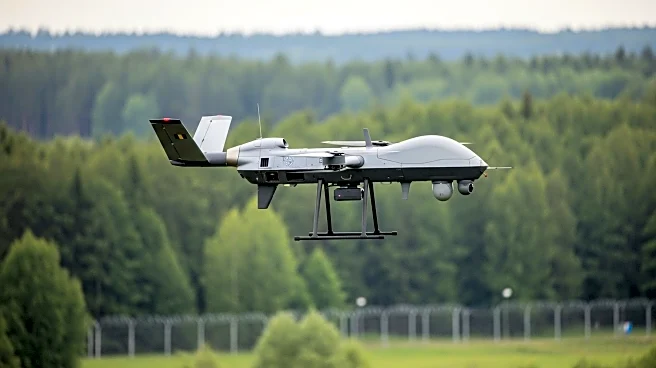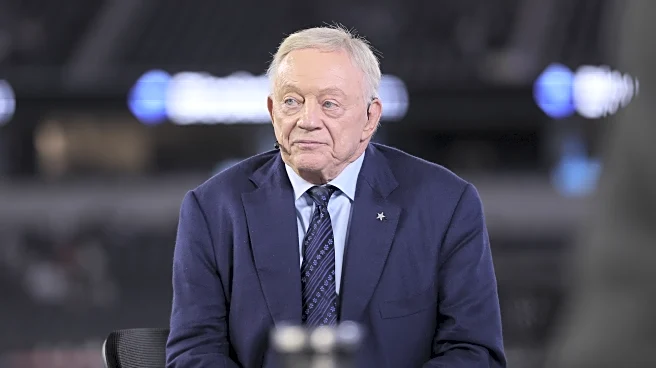What's Happening?
NATO has launched a new military operation named Eastern Sentry to enhance its defensive posture on the eastern flank following a significant Russian drone incursion into Polish airspace. This development comes after Poland reported that 19 Russian drones had violated its airspace, with some being shot down and others crashing into fields and a house. In response, NATO allies, including Denmark, France, Germany, and the UK, are contributing military resources to bolster defenses. Denmark is deploying two F-16 fighter jets and a warship, while France and Germany are sending Rafale and Eurofighter jets, respectively. The UK has also pledged its commitment to the operation, with further details to be announced. The move underscores heightened tensions in Europe, particularly after peace talks between Russia and Ukraine were reported to be on hold.
Why It's Important?
The Eastern Sentry operation signifies a critical escalation in NATO's defensive measures in response to perceived Russian aggression. This action highlights the alliance's commitment to protecting its member states, particularly those on the eastern front, from potential threats. The involvement of multiple NATO countries in this operation underscores the collective security principle that is central to the alliance. The situation also reflects broader geopolitical tensions, as Russia's actions are seen as a test of NATO's resolve. The increased military presence could deter further incursions but also risks escalating military tensions in the region. The operation's success or failure could have significant implications for European security and NATO's strategic posture.
What's Next?
As the Eastern Sentry operation unfolds, NATO will likely continue to assess the situation and adjust its military presence as needed. The alliance may seek further contributions from other member states to strengthen its eastern defenses. Additionally, diplomatic efforts may intensify to address the underlying tensions between Russia and NATO countries. The international community will be closely monitoring the situation, and any further provocations could lead to additional military or diplomatic responses. The outcome of this operation could influence future NATO strategies and its approach to Russian relations.









